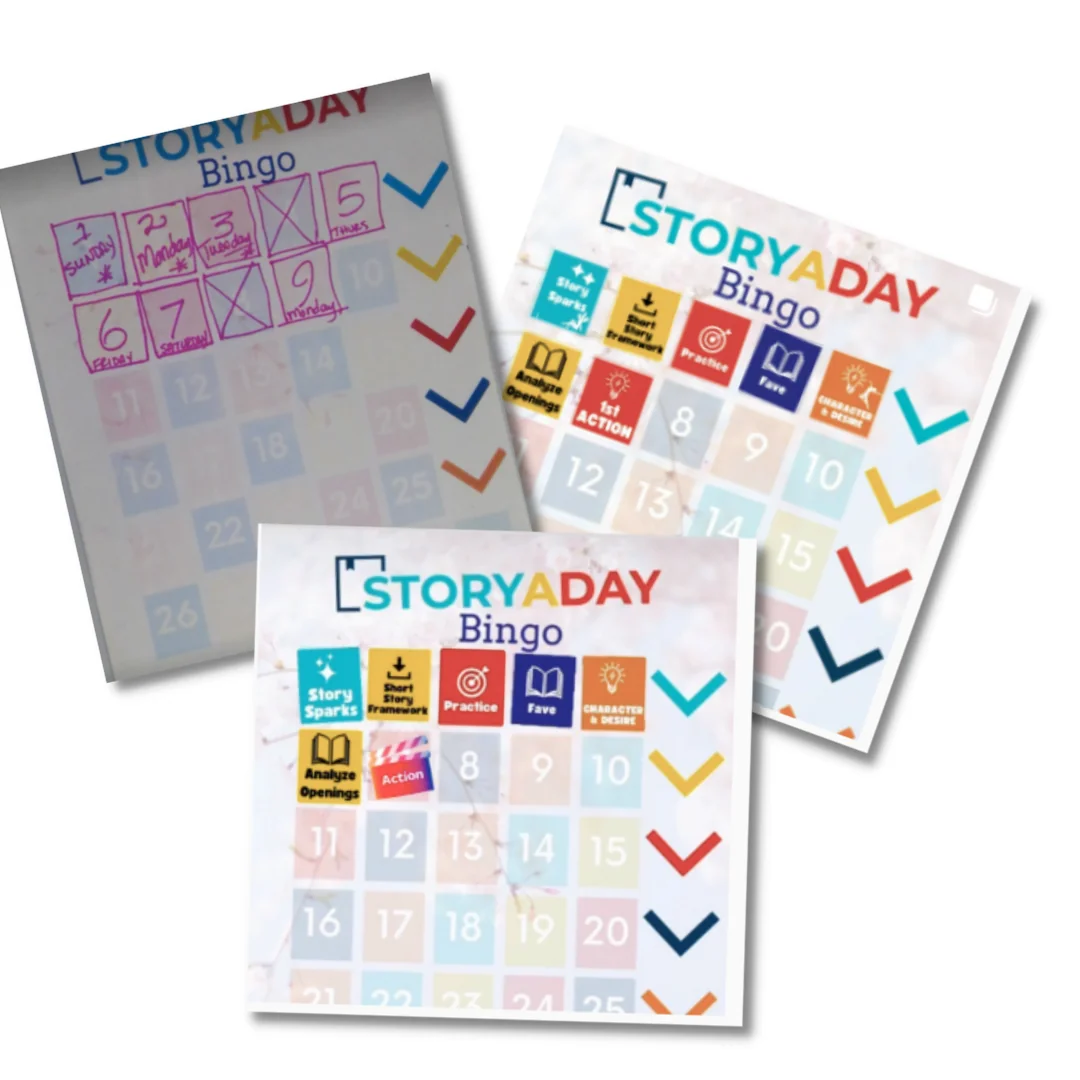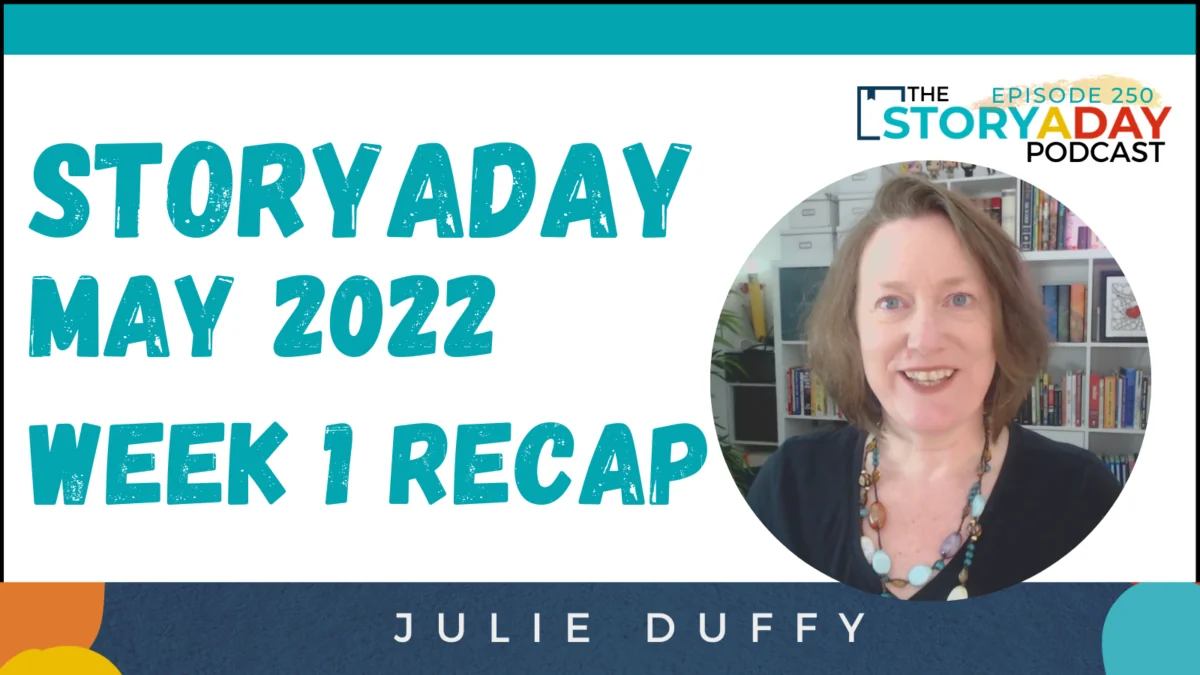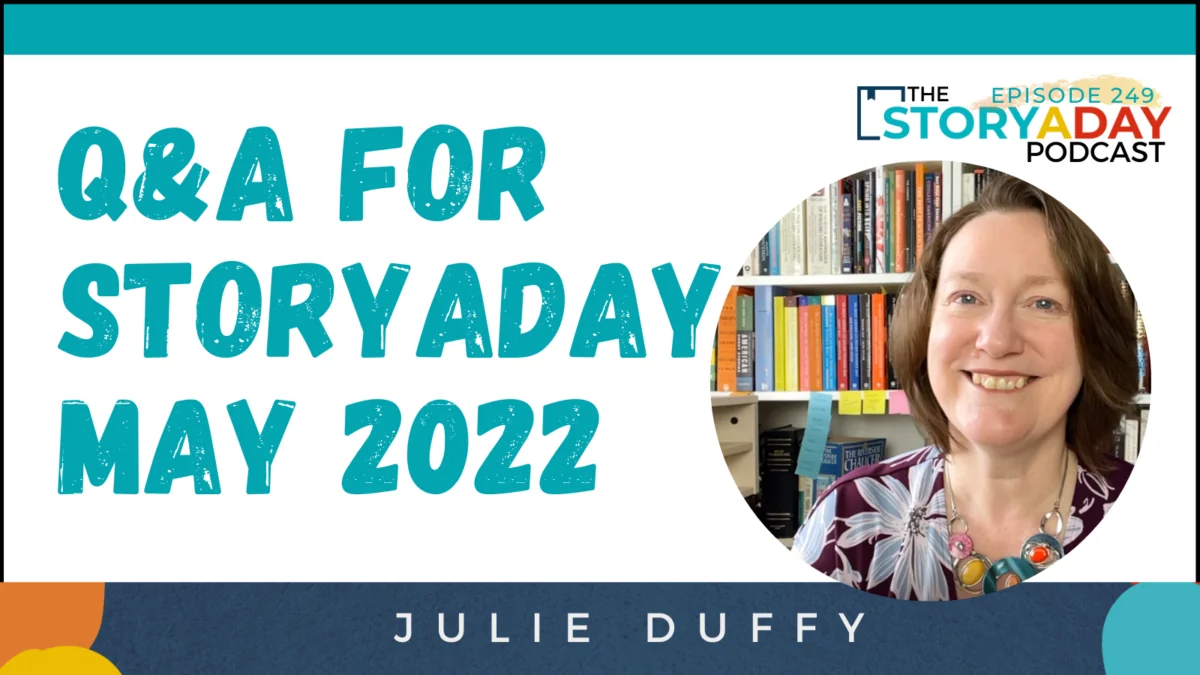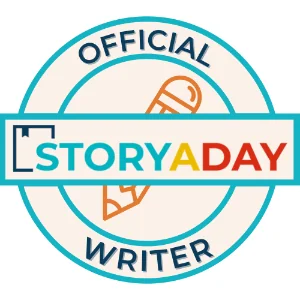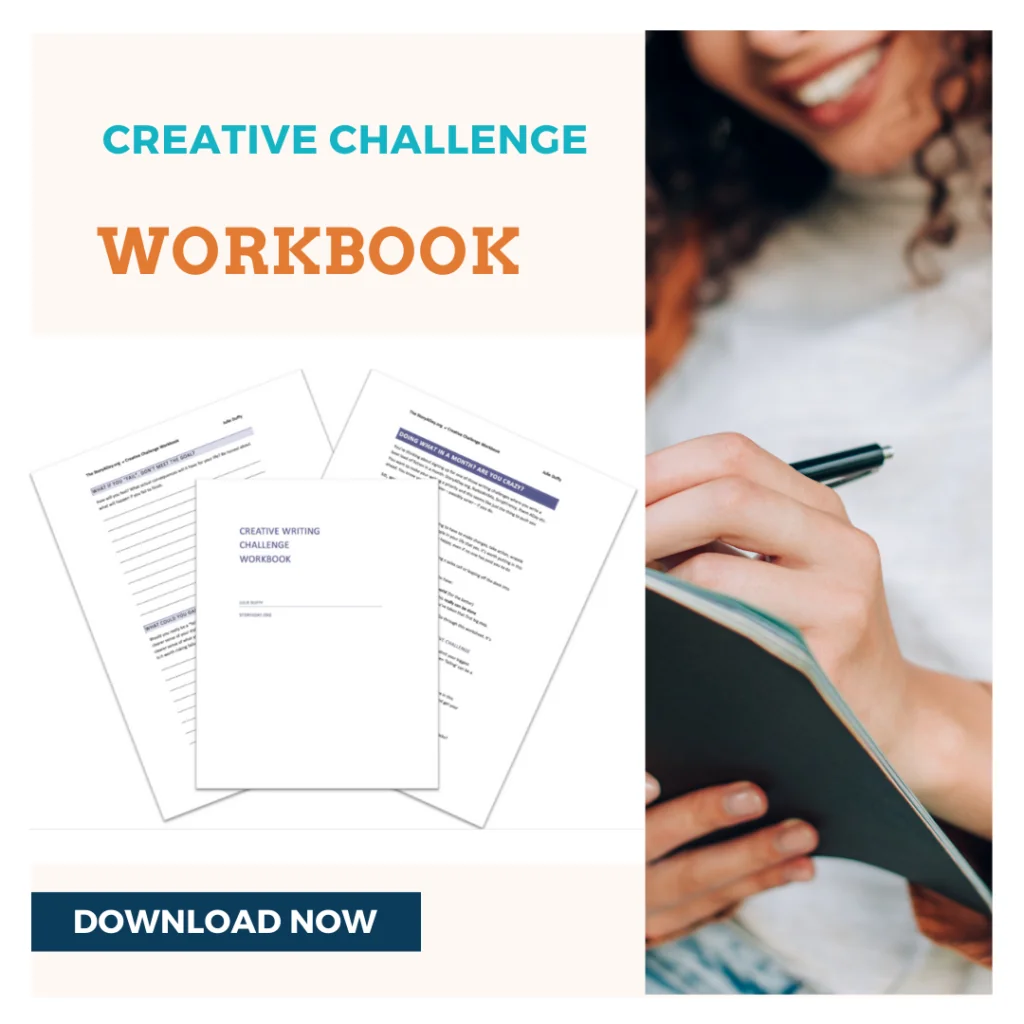| This year, as an added incentive to keep you writing during StoryADay May, I posted a bingo card and tokens on each prompts. It’s ridiculous how motivated we are by stickers and how much fun it is to do a little arts’n’crafts at the end of a long day! For those of you who’ve been playing along, well done (especially those of you who got inventive on days when I forgot to post the official piece!) I promised that, if you posted your bingo card on social media (or left a comment on the blog saying you pinkie-swear you’ve been checking in every day), I would draw winners to receive a special something in the mail from me. This week’s winners are: Michele Reisinger Faith Canright Brenda Rech SpiritGrind7 (Rory) Wendy Blunty Stephanie Darla Jessica If that’s you, email me at julie at storyaday dot org with your mailing address and I’ll get you prize in the mail to you. (I will not share your address with anyone) If that’s not you, don’t worry, this is a new week, and you can start posting your bingo card now (any social media, use the #storyadaybingo so I can find you, or, if you don’t do social media, pinkie-swear in Saturday’s comments!) What will the prizes be? Remember those old Mastercard ads? “Priceless” is probably the best word 😉 If you haven’t been keeping up with the challenge as well as you’d hoped, now is a great time to consider what is getting in your way, or how you might want to update your ‘rules’ for the rest of the month, to make it more realistic, but still push you to do the writing you long to do. If you have been writing but not posting the bingo card, please know I salute you, just the same! Keep writing, Julie P. S. Download your bingo gameboard here |
StoryADay 2022 Week 1 Bingo winners
This week’s #StoryADayBingo winners are…

